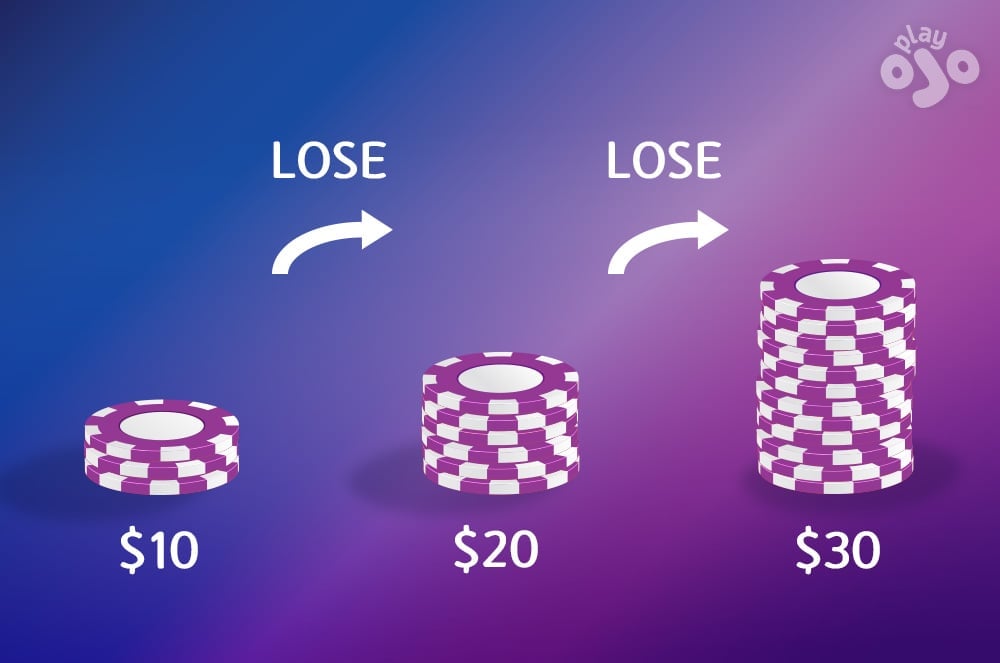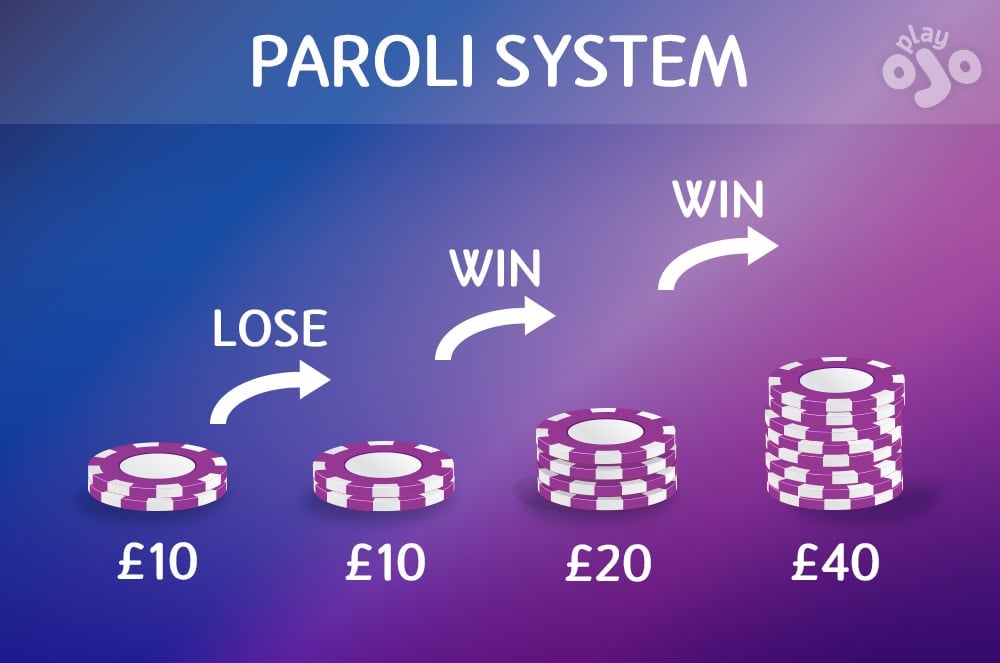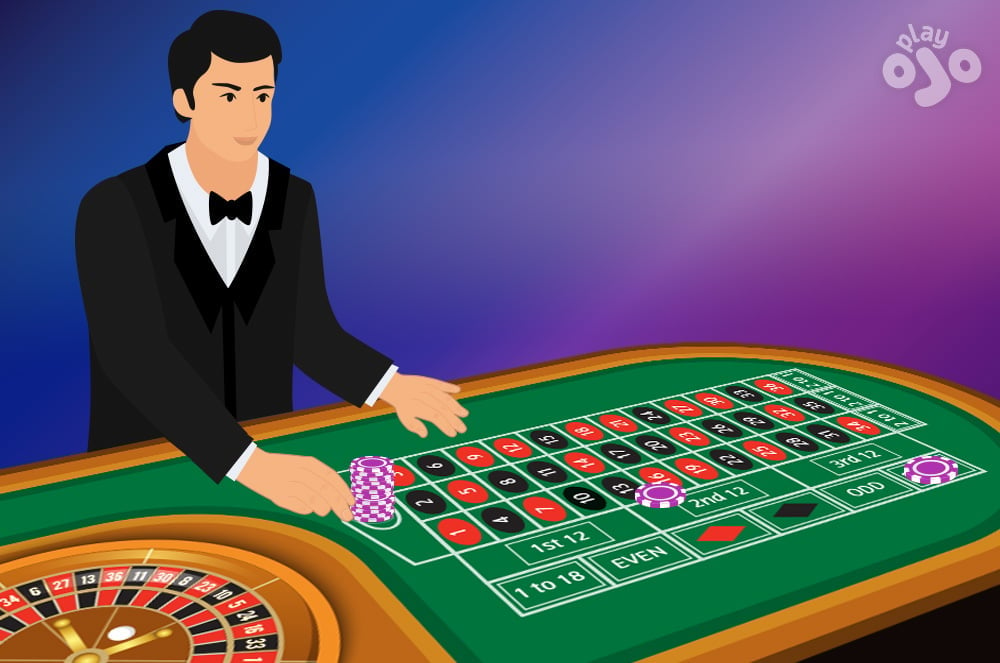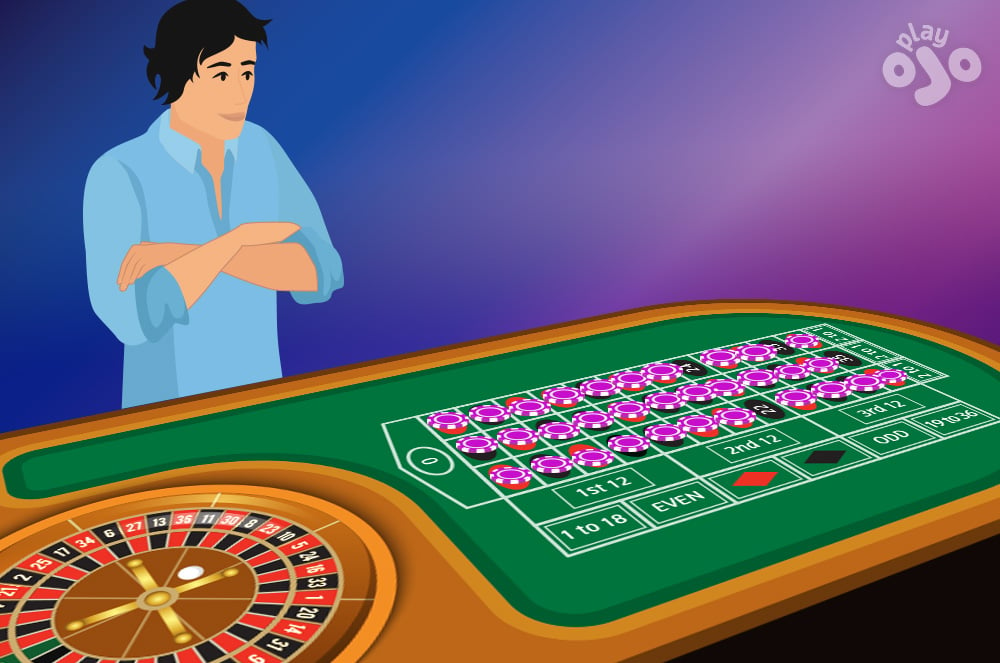What’s the Best Roulette Strategy?
By Daniel Grant
Updated 10 Jul, 2025

Roulette is a game of luck and no roulette strategy can improve your odds of winning. Roulette strategies on this page are explained for information purposes only.
Roulette has been around for centuries and for as long as the wheel has been spinning, players have tried to find a roulette strategy that can help them beat the game.
Incredibly, the most popular roulette strategies in the 19th century are still top of the pile today. Classic red or black roulette systems like Martingale, d’Alembert, Paroli and Bond are the first place people look in their quest for a profitable strategy. But as you’re about to discover, they all have one thing in common….
What are roulette strategies and do they work?
Before we tackle the so-called best roulette strategies, let’s recap what roulette is and why you even need a strategy.
With no skill and lots of luck, playing roulette is a bit like picking numbers on the lotto. Pick the right number and you can win up to 35 times your bet. But the catch with roulette – just like every casino game – is the house edge.
In European roulette, the house edge on every bet type is 2.70%. There’s no escaping that cost of playing, which means you can’t improve your chances of winning consistently simply by varying what numbers you play. What you can change is the amount you bet.
By increasing or decreasing your bet size based on the outcome of your previous spin when you play roulette games online, you can have a large short-term impact on the result of your roulette session. And that’s where the most popular roulette strategies like the Martingale system come in.

But let’s cut to the chase. Despite what you might read on YouTube, there is no such thing as a winning roulette strategy and anyone who tries to sell you one deserves to lose their shirt.
But although no roulette strategy will make you rich (and some might even achieve the opposite pretty quick), the following best-known roulette strategies can be fun to play if you practice sensible bankroll management.
The Martingale method
The best-known of all roulette strategies, Martingale is a notorious red and black roulette strategy that casinos have long since neutralized by capping the table stakes. Although I suggest you avoid this like the plague, it’s still important to know what it is, and why it’s destined to fail.
‘Martingaling’ involves placing even money roulette bets like red or black, and doubling your stake on the next spin if you lose.
Rather than simply trying to win back your loss from the previous spin, the goal of the Martingale roulette strategy is to win back your stake from the previous sequence of losses AND make a profit of 1 unit.
Here’s an example of Martingale in action:
We start with a £1 bet on red, although it could just as well be any even money bet such as black, odd or even, high or low.
Bet | Stake | Result | Total stake | Running profit |
#1 | £1 | Lose | – | -£1 |
#2 | £2 | Lose | £3 | -£3 |
#3 | £4 | Lose | £7 | -£7 |
#4 | £8 | Lose | £15 | -£15 |
#5 | £16 | £32 | £31 | £1 |
We get off to bad start with 4 Blacks in a row, and double our bet each time. We finally hit Red on the 5th spin to come away with a £1 profit. If we had lost that 5th bet, we’d be staking a whopping £64 on spin #6, and #128 on spin #7.
There are various reasons the Martingale betting system is not a winner:
To begin with, losing several coin flips in a row is far from impossible. It is almost inevitable that you’ll end up betting huge sums to try and win back your first bet. And chasing losses is something you should never do, whatever game you play.
If you play long enough, you’ll eventually hit the table maximum and be unable to continue.
It would be fair to call this red or black roulette system ‘chasing losses’, but I also see it as an investment strategy with an extremely unattractive and unbalanced shape; You can’t win much, but you can lose big. If you’re looking for a roulette strategy which works, keep looking.
The Paroli system

Martingale is all about what to bet when you lose, whereas the Paroli roulette system focuses on what to do if you win. This is yet another roulette strategy usually used with black and red, and in this case, we double our bet when we win. That’s why the Paroli method is sometimes called the Reverse Martingale.
Like Martingale, this is a black or red roulette strategy but this time, you double your next bet after a win, and return to flat betting 1 unit when you lose. The goal of the Paroli roulette strategy is to achieve 3 consecutive wins, which will net you a 7 unit profit.
Here’s an example:
Bet | Stake | Result | Total stake | Running profit |
#1 | £1 | Lose | – | -£1 |
#2 | £1 | Win | £2 | £0 |
#3 | £2 | Win | £4 | £2 |
#4 | £4 | Win | £8 | £6 |
#5 | £1 | Lose | £9 | £5 |
We start with a loss and continue to bet our £1 unit stake. Once we get a win on the 2nd spin, we double our bet, and continue to double until we hit our 3rd win. Our mission is now complete, so we return to a £1 unit bet and start over.
Although the Paroli system gives you no greater edge over the house than any other system, it has a less risky structure, which attacks when you’re winning and defends when you’re losing.
Fans of the Paroli strategy will often change the structure (e.g. stop at 4 wins in a row) and play it with Column or Dozen bets with a 2 to 1 payout.
The d’Alembert system
We’ve already seen 2 roulette strategies that double your bet size when you either win or lose. Now we’ve got a strategy with rules for how much to bet when you win AND when you lose. It also smooths out the wild swings of doubling systems with a more conservative bet spread.
Using the d’Alembert betting system, you increase your bet by 1 unit when you win, and decrease it by 1 unit when you lose. Like Paroli, the end-game is to turn a short-term profit and then start again from scratch.
Here’s how it might work with a £1 unit bet, although we start at £5 so we have room to decrease if we lose.
Bet | Stake | Result | Total stake | Running profit |
#1 | £5 | Lose | £5 | -£5 |
#2 | £4 | Win | £9 | -£1 |
#3 | £5 | Win | £14 | £4 |
#4 | £6 | Win | £20 | £10 |
#5 | £7 | Lose | £27 | £3 |
As with all other roulette betting strategies, this system relies on short term luck, and has no bearing on the overall house edge. It does however offer something unique, by taking elements of Paroli and fusing it with a way to protect your stake when you lose.
By reducing the bet spread to 1 unit, it eliminates the risk of big losses. Anything that protects your bankroll gets a thumbs up from me.
If you do fancy trying any of these roulette betting systems, be sure to play with French roulette rules which halve the house edge on even money bets to just 1.35%. If you can’t find a French table, a European roulette game will do.
You should avoid playing even money roulette strategies at an American roulette table, due to the effect of the double zero.
Check out our roulette guide if you want to understand more about the difference between these variations of the game.
The Bond roulette bet
I’ve covered the most popular roulette betting strategies based on changes in bet sizing, but this is a fun roulette numbers strategy that focuses on a specific set of roulette wheel numbers.

There’s no evidence that James Bond ever used this famous roulette strategy in a film, nor that it will make you money (it won’t). But this system – which my colleague Sarah covers in much greater detail in her excellent Bond Roulette strategy article – involves an interesting combination of numbers and bets sizes, with 4 possible outcomes.
Here’s how it works, using an example stake of £10 per spin:
Bet | Stake | Profit |
Zero | 50p | £8 |
13 to 18 | £2.50 | £5 |
High (19 to 36) | £7 | £4 |
The method uses a mix of straight up, six line and even money bets, as well as a tiered stake structure. The worst case scenario is that around 32% of the time, you’ll lose your entire stake. With any other outcome, you’ll make a modest profit.
Although this strategy includes a 35 to 1 bet on 0, it’s basically an odds-on bet that wins most of the time, but pays roulette odds of less than 1 to 1 on your money.
Although most players who try the Bond system bet the same amount on every spin (called flat betting), some combine it with the Martingale method, increasing their stakes after each loss. You already know my view on Martingale, so I recommend you stick to flat betting if you do try the Bond method.
The 666 system
I might as well discuss the 666 roulette strategy, given how often it’s mentioned, although god (and the devil) knows why!
In a nutshell, you’re covering all but 4 of the roulette numbers on a wheel and hoping to make a meager 10% return on your money.
Not a thrilling profit margin, but at least you’ll win almost every time.

The 666 roulette system gets its name partly because all numbers on a roulette wheel add up to 666, and also because it requires a total of 66 units on each spin, and makes a 6 unit profit when it wins.
This method features 10 separate bets including 3 x single number bets, 6 x split bets and a chunky even money bet.
Bet | Stake | Return (Profit) |
Red | £36 | £72 (£6) |
0-2 | £4 | £72 (£6) |
8-11 | £4 | £72 (£6) |
10-13 | £4 | £72 (£6) |
17-20 | £4 | £72 (£6) |
26-29 | £4 | £72 (£6) |
28-31 | £4 | £72 (£6) |
4, 6, 15, 22, 24, 33 or 35 | £2 | £72 (£6) |
4, 6, 15, 22, 24, 33 or 35 | £2 | £72 (£6) |
4, 6, 15, 22, 24, 33 or 35 | £2 | £72 (£6) |
In effect you’re covering 33 of the 37 numbers on the board and getting the same return whatever you hit.
On average:
you’ll make a 6 unit profit 33 times out of 37,
and lose all 66 units 4 times in 37.
In football betting terms, you’re backing a Barcelona home win at odds of 1/10.
In slots terminology, you’re playing a super low variance game with very small, very frequent wins.
For me, the main issue with the 666 System is a psychological one. You’ll expect to win every time, and on those rare occasions when you lose, you’ll think it’s unfair.
Backing dead-certs can be more fun when you’re learning how to play roulette than waiting hundreds of roulette games for your single number to come in, but it’s a losing strategy just the same.
Conclusion
In rouette, red or black aren’t just the colours on the wheel. These two bets have spawned most of the roulette strategies ever concocted, and yet none of the most popular roulette strategies I’ve discussed will turn a profit in the long run. You simply cannot beat a game of chance with a built-in house edge. But depending on the balance of risk/reward you prefer, some of these strategies give you plenty of bang for your buck.
If you want to try a roulette strategy next time you’re playing live roulette, stick with one that minimizes losses, bet only what you’re happy to lose and you should get plenty of enjoyment from this classic casino game.
FAQ
What is the best roulette strategy?
No roulette betting strategy performs any better than the others, because they are all subject to the same house edge. It doesn’t matter if you follow the Martingale system or the Paroli system, the long term outcome will be the same. The most successful roulette strategy in my experience is not so much a roulette betting system as a choice about the best game to play. I have always played French roulette and focused on even money bets like red or black, because they have the lowest house edge. It’s not a winning roulette system, but at least it’s the best value! I also like roulette strategies that involve the neighbours bet in roulette, as you cover 5 consecutive numbers on the wheel and can enjoy watching the ball get close to that section.
Why don’t roulette strategies win?
Unless you can find a biased roulette wheel, faulty online roulette software or a crystal ball, there is no way to get around the house edge. In roulette, about 3% of all bets are retained by the casino, and 97% of bets are returned to players. Along with death and taxes, that is the only certainty in life! Almost every roulette wheel strategy tends to focus on changing bet size, not picking numbers that may occur more often. Any roulette strategy can win in the short term if you are lucky in hitting your numbers, but they cannot change the odds of winning in the long run. Staying away from red or black roulette systems like Martingale (unless you’re betting small to have a bit of fun) is one of the best roulette tips I can ever give you.
What is the worst roulette strategy
All online roulette strategies are losing strategies – so it’s hard to pick one over another. Although you shouldn’t expect any roulette strategy to win, I view the Martingale system as the most risky, as it is almost guaranteed to end in disaster, unless you cap the losses by stopping after 4 or 5 losing bets. Any American roulette strategy would have to be among the worst too, as the game has the lowest RTP in roulette. Whatever strategy you do try, please make sure you play responsibly.
Related Posts

Daniel Grant
About the Author
Dan Grant is a 25-year veteran of the gaming industry and a leading authority on iGaming content with over 1,000 articles on topics such as industry trends and bankroll strategy. He began in sports betting in 1997, then spent 11 years at a leading poker brand. As a content lead for iGaming marketing agencies, Dan has worked with over 30 regulated gaming brands, including giants like IGT. He also has a Law degree, providing a unique perspective on the regulatory complexities of the gaming market.
Availability depends on your country
















We use both automated and manual processes in order to verify the age of the customer registering the account and any player under the age of 18 who registers an account will have their account closed immediately.
We say NO to Underage Gambling . We do not allow players under the age of 18 to gamble. This is stated in our Terms and Conditions.
Trademark ™ 2025 PlayOJO. All rights reserved.
Apple and the Apple logo are trademarks of Apple Inc., registered in the U.S. and other countries. App Store is a service mark of Apple Inc., registered in the U.S. and other countries.
